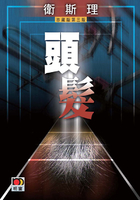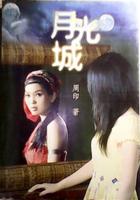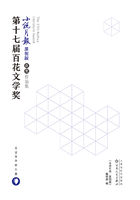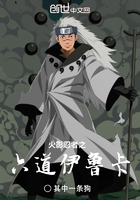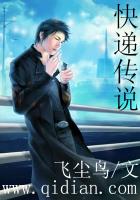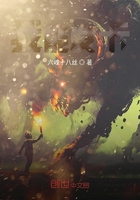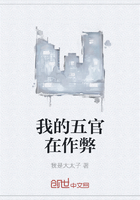FOR Chilo, it was really important to set aside Glaucus, who, though advanced in years, was by no means decrepit. There was considerable truth in what Chilo had narrated to Vinicius. He had known Glaucus on a time, he had betrayed him, sold him to robbers, deprived him of family, of property, and delivered him to murder. But he bore the memory of these events easily, for he had thrown the man aside dying, not at an inn, but in a field near Minturna. This one thing he had not foreseen, that Glaucus would be cured of his wounds and come to Rome. When he saw him, therefore, in the house of prayer, he was in truth terrified, and at the first moment wished to discontinu the search for Lygia. But on the other hand, Vinicius terrified him still more. He understood that he must choose between the fear of Glaucus, and the pursuit and vengeance of a powerful patrician, to whose aid would come, beyond doubt, another and still greater,Petronius. In view of this, Chilo ceased to hesitate. He thought it better to have small enemies than great ones,and, though his cowardly nature trembled somewhat at bloody methods, he saw the need of killing Glaucus through the aid of other hands.
At present the only question with him was the choice of people, and to this he was turning that thought of which he had made mention to Vinicius. Spending his nights in wine-shops most frequently, and lodging in them, among men without a roof, without faith or honor, he could find persons easily to undertake any task, and still more easily others who, if they sniffed coin on his person, would begin, but when they had received earnest money, would extort the whole sum by threatening to deliver him to justice. Besides,for a certain time past Chilo had felt a repulsion for nakedness, for those disgusting and terrible figures lurking about suspected houses in the Subura or in the Trans-Tiber. Measuring everything with his own measure, and not having fathomed sufficiently the Christians or their religion, he judged that among them, too, he could find willing tools. Since they seemed more reliable than others, he resolved to turn to them and present the affair in such fashion that they would undertake it, not for money's sake merely, but through devotion.
In view of this, he went in the evening to Euricius,whom he knew as devoted with whole soul to his person, and who, he was sure, would do all in his power to assist him. Naturally cautious, Chilo did not even dream of revealing his real intentions, which would be in clear opposition, moreover, to the faith which the old man had in his piety and virtue. He wished to find people who were ready for anything,and to talk with them of the affair only in such a way that, out of regard to themselves, they would guard it as an eternal secret.
The old man Euricius, after the redemption of his son, hired one of those little shops so numerous near the Circus Maximus, in which were sold olives, beans,unleavened paste, and water sweetened with honey,to spectators coming to the Circus. Chilo found him at home arranging his shop; and when he had greeted him in Christ's name, he began to speak of the affair which had brought him. Since he had rendered them a service, he considered that they would pay him with gratitude. He needed two or three strong and courageous men, to ward off danger threatening not only him, but all Christians. He was poor, it was true, since he had given to Euricius almost all that he owned; still he would pay such men for their services if they would trust him and perform faithfully what he commanded.
Euricius and his son Quartus listened to him as their benefactor almost on their knees. Both declared that they were ready themselves to do all that he asked of them, believing that a man so holy could not ask for deeds inconsistent with the teaching of Christ.
Chilo assured them that that was true, and, raising his eyes to heaven, he seemed to be praying; in fact,he was thinking whether it would not be well to accept their proposal, which might save him a thousand sestertia. But after a moment of thought he rejected it. Euricius was an old man, perhaps not so much weighted by years as weakened by care and disease.Quartus was sixteen years of age. Chilo needed dexterous, and, above all, stalwart men. As to the thousand sestertia, he considered that—thanks to the plan which he had invented—he would be able in every case to spare a large part of it.
They insisted for some time, but when he refused decisively they yielded.
"I know the baker Demas," said Quartus, "in whose mills slaves and hired men are employed. One of those hired men is so strong that he would take the place,not of two, but of four. I myself have seen him lift stones from the ground which four men could not stir.""If that is a God-fearing man, who can sacrifice himself for the brotherhood, make me acquainted with him," said Chilo.
"He is a Christian, lord," answered Quartus; "nearly all who work for Demas are Christians. He has night as well as day laborers; this man is of the night laborers. Were we to go now to the mill, we should find them at supper, and thou mightest speak to him freely. Demas lives near the Emporium."
Chilo consented most willingly. The Emporium was at the foot of the Aventine, hence not very far from the Circus Maximus. It was possible, without going around the hill, to pass along the river through the Porticus AEmilia, which would shorten the road considerably.
"I am old," said Chilo, when they went under the Colonnade; "at times I suffer effacement of memory.Yes, though our Christ was betrayed by one of his disciples, the name of the traitor I cannot recall at this moment—"
"Judas, lord, who hanged himself," answered Quartus, wondering a little in his soul how it was possible to forget that name.
"Oh, yes—Judas! I thank thee," said Chilo.
And they went on some time in silence. When they came to the Emporium, which was closed, they passed it, and going around the storehouse, from which grain was distributed to the populace, they turned toward the left, to houses which stretched along the Via Ostiensis,up to the Mons Testaceus and the Forum Pistorium.There they halted before a wooden building, from the interior of which came the noise of millstones. Quartus went in; but Chilo, who did not like to show himself to large numbers of people, and was in continual dread that some fate might bring him to meet Glaucus,remained outside.
"I am curious about that Hercules who serves in a mill," said he to himself, looking at the brightly shining moon. "If he is a scoundrel and a wise man,he will cost me something; if a virtuous Christian and dull, he will do what I want without money."
Further meditation was interrupted by the return of Quartus, who issued from the building with a second man, wearing only a tunic called "exomis,"cut in such fashion that the right arm and right breast were exposed. Such garments, since they left perfect freedom of movement, were used especially by laborers. Chilo, when he saw the man coming, drew
a breath of satisfaction, for he had not seen in his life such an arm and such a breast.
"Here, lord," said Quartus, "is the brother whom it was thy wish to see."
"May the peace of Christ be with thee!" answered Chilo. "Do thou, Quartus, tell this brother whether I deserve faith and trust, and then return in the name of
God; for there is no need that thy gray-haired father should be left in loneliness."
"This is a holy man," said Quartus, "who gave all his property to redeem me from slavery,—me, a man unknown to him. May our Lord the Saviour prepare
him a heavenly reward therefor!"
The gigantic laborer, hearing this, bent down and kissed Chilo's hand.
"What is thy name, brother?" inquired the Greek.
"At holy baptism, father, the name Urban was given me."
"Urban, my brother, hast thou time to talk with me freely?"
"Our work begins at midnight, and only now are they preparing our supper."
"Then there is time sufficient. Let us go to the river; there thou wilt hear my words."
They went, and sat on the embankment, in a silence broken only by the distant sound of the millstones
and the plash of the onflowing river. Chilo looked into the face of the laborer, which, notwithstanding
a somewhat severe and sad expression, such as was usual on faces of barbarians living in Rome, seemed to
him kind and honest.
"This is a good-natured, dull man who will kill Glaucus for nothing," thought Chilo.
"Urban," inquired he then, "dost thou love Christ?"
"I love him from the soul of my heart," said the laborer.
"And thy brethren and sisters, and those who taught thee truth and faith in Christ?"
"I love them, too, father."
"Then may peace be with thee!"
"And with thee, father!"
Again silence set in, but in the distance the millstones were roaring, and the river was plashing below the two men.
Chilo looked with fixed gaze into the clear moonlight, and with a slow, restrained voice began to speak of Christ's death. He seemed not as speaking to Urban, but as if recalling to himself that death, or some secret which he was confiding to the drowsy city. There was in this, too, something touching as well as impressive. The laborer wept; and when Chilo began to groan and complain that in the moment of the Saviour's passion there was no one to defend him, if not from crucifixion, at least from the insults of Jews and soldiers, the gigantic fists of the barbarian began to squeeze from pity and suppressed rage. The death only moved him; but at thought of that rabble reviling the Lamb nailed to the cross, the simple soul in him was indignant, and a wild desire of vengeance seized the man.
"Urban, dost thou know who Judas was?" asked Chilo, suddenly.
"I know, I know!—but he hanged himself!" exclaimed the laborer.
And in his voice there was a kind of sorrow that the traitor had meted out punishment to himself, and that Judas could not fall into his hands.
"But if he had not hanged himself," continued Chilo,"and if some Christian were to meet him on land or on sea, would it not be the duty of that Christian to take revenge for the torment, the blood, and the death of the Saviour?"
"Who is there who would not take revenge, father?""Peace be with thee, faithful servant of the Lamb!True, it is permitted to forgive wrongs done ourselves;but who has the right to forgive a wrong done to God? But as a serpent engenders a serpent, as malice breeds malice, and treason breeds treason, so from the poison of Judas another traitor has come; and as that one delivered to Jews and Roman soldiers the Saviour, so this man who lives among us intends to give Christ's sheep to the wolves; and if no one will anticipate the treason, if no one will crush the head of the serpent in time, destruction is waiting for us all, and with us will perish the honor of the Lamb."
The laborer looked at Chilo with immense alarm, as if not understanding what he had heard. But the Greek,covering his head with a corner of his mantle, began to repeat, with a voice coming as if from beneath the earth,—"Woe to you, servants of the true God! woe to you, Christian men and Christian women!"
And again came silence, again were heard only the roar of the millstones, the deep song of the millers,and the sound of the river.
"Father," asked the laborer at last, "what kind of traitor is that?"
Chilo dropped his head. "What kind of traitor? A son of Judas, a son of his poison, a man who pretends to be a Christian, and goes to houses of prayer only to complain of the brotherhood to Caesar,—declaring that they will not recognize Caesar as a god; that they poison fountains, murder children, and wish to destroy the city, so that one stone may not remain on another. Behold! in a few days a command will be given to the pretorians to cast old men, women, and children into prison, and lead them to death, just as they led to death the slaves of Pedanius Secundus. All this has been done by that second Judas. But if no one punished the first Judas, if no one took vengeance on him, if no one defended Christ in the hour of torment,who will punish this one, who will destroy the serpent before Caesar hears him, who will destroy him, who will defend from destruction our brothers in the faith of Christ?"
Urban, who had been sitting thus far on a stone,stood up on a sudden, and said,—"I will, father."
Chilo rose also; he looked for a while on the face of the laborer, lighted up by the shining of the moon,then, stretching his arm, he put his hand slowly on his head.
"Go among Christians," said he, with solemnity;"go to the houses of prayer, and ask the brethren about Glaucus; and when they show him to thee, slay him at once in Christ's name!"
"About Glaucus?" repeated the laborer, as if wishing to fix that name in his memory
"Dost thou know him?"
"No, I do not. There are thousands of Christians in Rome, and they are not all known to one another. But to-morrow, in Ostrianum, brethren and sisters will assemble in the night to the last soul, because a great apostle of Christ has come, who will teach them, and the brethren will point out to me Glaucus."
"In Ostrianum?" inquired Chilo. "But that is outside the city gates! The brethren and all the sisters,—at night? Outside the city gates, in Ostrianum?"
"Yes, father; that is our cemetery, between the Viae Salaria and Nomentana. Is it not known to thee that the Great Apostle will teach there?"
"I have been two days from home, hence I did not receive his epistle; and I do not know where Ostrianum is, for I came here not long since from Corinth, where I govern a Christian community. But it is as thou sayest,—there thou wilt find Glaucus among the brethren, and thou wilt slay him on the way home to the city. For this all thy sins will be forgiven. And now peace be with thee—"
"Father—"
"I listen to thee, servant of the Lamb."
On the laborer's face perplexity was evident. Not long before he had killed a man, and perhaps two,but the teaching of Christ forbids killing. He had not killed them in his own defence, for even that is not permitted. He had not killed them, Christ preserve!for profit. The bishop himself had given him brethren to assist, but had not permitted him to kill; he had killed inadvertently, for God had punished him with too much strength. And now he was doing grievous penance. Others sing when the millstones are grinding; but he, hapless man, is thinking of his sin,of his offence against the Lamb. How much has he prayed already and wept? How much has he implored the Lamb? And he feels that he has not done penance enough yet! But now he has promised again to kill a traitor,—and done well! He is permitted to pardon only offences against himself; hence he will kill Glaucus,even before the eyes of all the brethren and sisters, in Ostrianum to-morrow. But let Glaucus be condemned previously by the elders among the brethren, by the bishop, or by the Apostle. To kill is not a great thing;to kill a traitor is even as pleasant as to kill a bear or a wolf. But suppose Glaucus to perish innocently? How take on his conscience a new murder, a new sin, a new offence against the Lamb?
"There is no time for a trial, my son," said Chilo."The traitor will hurry from Ostrianum straightway to Caesar in Antium, or hide in the house of a certain patrician whom he is serving. I will give thee a sign; if thou show it after the death of Glaucus, the bishop and the Great Apostle will bless thy deed."
Saying this, he took out a small coin, and began to search for a knife at his belt; having found it, he scratched with the point on the sestertium the sign of the cross; this coin he gave to the laborer.
"Here is the sentence of Glaucus, and a sign for thee. If thou show this to the bishop after the death of Glaucus, he will forgive thee the killing which thou hast done without wishing it."
The laborer stretched out his hand involuntarily for the coin; but having the first murder too freshly in his memory just then, he experienced a feeling of terror.
"Father," said he with a voice almost of entreaty,"dost thou take this deed on thy conscience, and hast thou thyself heard Glaucus betraying his brethren?"
Chilo understood that he must give proofs, mention names, otherwise doubt might creep into the heart of the giant. All at once a happy thought flashed through his head.
"Listen, Urban," said he, "I dwell in Corinth, but I came from Kos; and here in Rome I instruct in the religion of Christ a certain serving maiden named Eunice. She serves as vestiplica in the house of a friend of Caesar, a certain Petronius. In that house I have heard how Glaucus has undertaken to betray all the Christians; and, besides, he has promised another informer of Caesar's, Vinicius, to find a certain maiden for him among the Christians."
Here he stopped and looked with amazement at the laborer, whose eyes blazed suddenly like the eyes of a wild beast, and his face took on an expression of mad rage and threat.
"What is the matter with thee?" asked Chilo, almost in fear.
"Nothing, father; to-morrow I will kill Glaucus."
The Greek was silent. After a while he took the arm of the laborer, turned him so that the light of the moon struck his face squarely, and examined him with care.It was evident that he was wavering in spirit whether to inquire further and bring everything out with clearness, or for that time to stop with what he had learned or surmised.
At last, however, his innate caution prevailed. He breathed deeply once and a second time; then, placing his hand on the laborer's head again, he asked, in an emphatic and solemn voice,—"But in holy baptism the name Urban was given thee?"
"It was, father."
"Then peace be with thee, Urban!"

